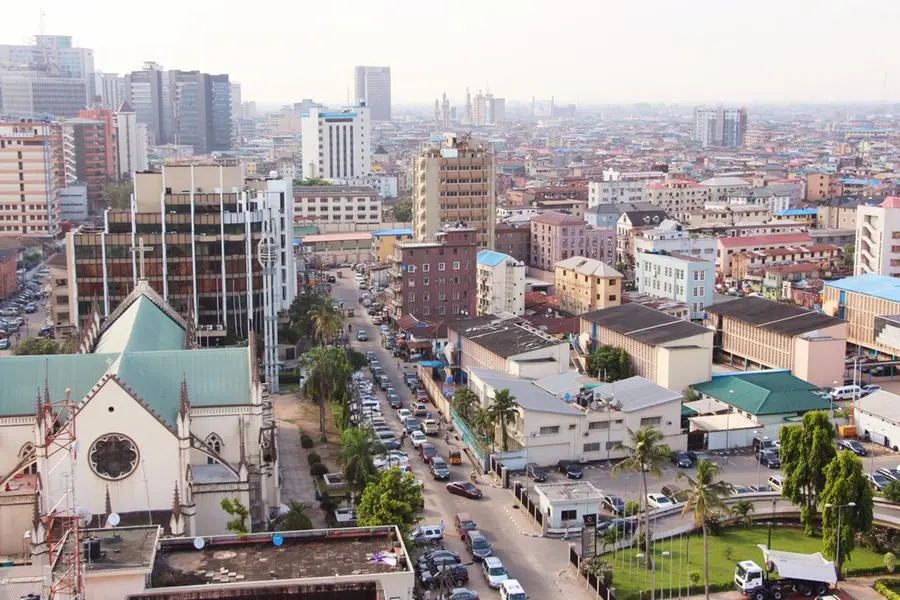PHOTO
NIGERIA’S rising inflation has led to increase in bond yields, leading to massive investors’ rush and over subscription of Federal Government (FG’s) monthly bonds by N85.3 billion.
Bond yield is its overall percentage rate of return on investment. Experts say rising prices over time (inflation) reduce the purchasing power of each interest payment a bond makes thereby creating the need for higher yields.
Nigeria’s consumer price index (CPI), which measures the rate of change in prices of goods and services, rose for the tenth consecutive time to 27.33 percent in October 2023 — up from 26.72 percent in the previous month.
Related Posts40% IGR deduction: SSUCOEN commends Tinubu for withdrawing policyLagos is open for business —Sanwo-OluCapital market has absorptive capacity to fund infrastructure —ASHON chairman
For instance, 27.33 percent of N50,000 is N13,665.
A five-year bond that pays N50,000 every six months, means that with 27.33 percent rise in Inflation the worth of N50,000 is less N13,665 in five years from now (N36,665 worth).
When investors worry that a bond’s yield won’t keep up with the rising costs of inflation, the price of the bond drops because there is less investor demand for it.
The Debt Management Office (DMO) held its monthly primary market auction of Federal government of Nigeria’s (FGN) bonds Monday last week.
The auction according to analysts from FBNQuest Research was a resounding success, especially compared to its three previous auctions.
The agency ended up with total sales of N435 billion, about 1.2x the N360 billion it had on offer. The sales-to-offer ratio was a marked improvement compared with the 0.8x average recorded over its prior three auctions.
However, analysts said total subscriptions amounted to N445.3 billion ( against N360 billion in offer ) implying a bid-to-cover ratio of 1.0x, slightly below 1.1x at the previous auction in October 2023.
The range of bids received by the DMO during this week’s action was significantly higher in comparison to the preceding month. As a result, the marginal rates trended upward.
Available records show that the marginal rates for the five-year (Apr’ 29), nine-year (Jun’ 33), 14-year (June 38), and 29-year (Jun’ 53) closed at 16.0 percent,17.0 percent, 17.5 percent, and 18.0 percent, respectively compared with 14.9 percent, 15.75 percent, 15.8 percent, and 16.6 percent, registered during the October 2023 auction.
“Given the DMO’s ongoing efforts to meet its NGN7 trillion domestic funding target, the President’s recent approval of a supplementary budget totalling NGN2.2 trillion likely contributed to the higher bids submitted by market participants.
“The additional budget approval suggests increased pressure on the DMO, prompting its adoption of higher cut-off points for the yields across the four maturities, “ The FBNQuest Research analysts stated in a note to clients.
Year-to-date, the DMO has generated record sales of around N5.1 trillion through its monthly auction of FGN bonds. If non-competitive allotments are included, the figure rises to N5.6 trillion.
According to FBNQuest, the DMO’s effort is quite commendable. Amid tight global financial market conditions, the DMO’s role in sourcing funds from the domestic market to cover the government’s funding deficit has become more crucial than ever, it added.
Meanwhile, the Monetary Policy Committee has a scheduled meeting later this month. Given the persistent rise in headline inflation, analysts anticipate the committee will raise the policy rate by approximately 50 basis points (bps).
“As a result, we expect that yields will remain elevated,” the team noted.
Copyright © 2022 Nigerian Tribune Provided by SyndiGate Media Inc. (Syndigate.info).




















